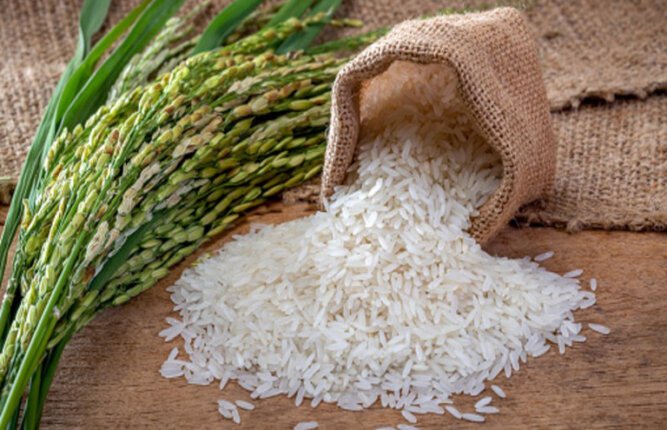ISLAMABAD: Pakistan’s rice sector has entered the new fiscal year on a mixed note, as overall exports posted a modest increase in July 2025, but Basmati rice, the country’s premium brand grain, witnessed a sharp and alarming decline.
According to official trade data, Pakistan exported 291,902 tons of rice in July 2025, an increase of 21,900 tons compared to 270,002 tons in the same month last year. The growth, however, was driven entirely by non-Basmati rice, which jumped by 60,930 tons to 239,562 tons. In stark contrast, Basmati rice exports nosedived by 43 percent, falling to just 52,339 tons in July 2025 compared to 92,541 tons a year earlier.
This dramatic decline has raised concerns among exporters and policymakers alike, given Basmati’s importance for foreign exchange earnings and its branding value in international markets.
Industry insiders revealed that the fall in Basmati exports was concentrated in key destinations, with exports of brown rice dropping sharply in the UK and EU markets, while exports of white and parboiled rice declined in the Middle Eastern markets of Oman and Saudi Arabia, traditionally strong buyers of Pakistani Basmati.
Exporters warn that Pakistan’s rice sector is bracing for severe headwinds in the ongoing fiscal year. Cheaper Indian rice has flooded global markets, with both non-Basmati and Basmati varieties available at significantly lower prices, while the recent 2.5 percent fall in the Indian rupee has further reduced their export rates, making them even more competitive.
On the other hand, appreciation of the Pakistani rupee is eroding the country’s export margins at a time when competitors are gaining ground. Compounding these challenges, exporters continue to complain of undue restrictions and delayed shipment inspections by the Department of Plant Protection (DPP) and the newly formed National Agri Trade and Food Safety Authority (NAFSA). These bureaucratic bottlenecks, as highlighted in earlier reports, are causing shipment delays, cancellation of export orders, and loss of trust among foreign buyers.
Despite the steep fall in Basmati, some relief has come from the non-Basmati segment, which recorded strong demand in regional markets. Exporters, however, caution that this trend may not be sustainable if India continues to undercut prices globally. They stress that Pakistan must urgently address policy and regulatory inefficiencies, alongside working on branding and marketing of Basmati, if it is to safeguard its traditional export stronghold. “Without decisive action, Pakistan risks losing Basmati’s premium position in global markets,” one exporter warned, citing that even long-standing buyers are switching to cheaper alternatives.
Earlier investigative reports revealed how persistent inefficiencies, corruption, and red tape in DPP and NAFSA have already dented Pakistan’s agricultural exports — from mangoes to rice. The sharp July 2025 Basmati slump now adds urgency to calls for reform in Pakistan’s export facilitation regime.




